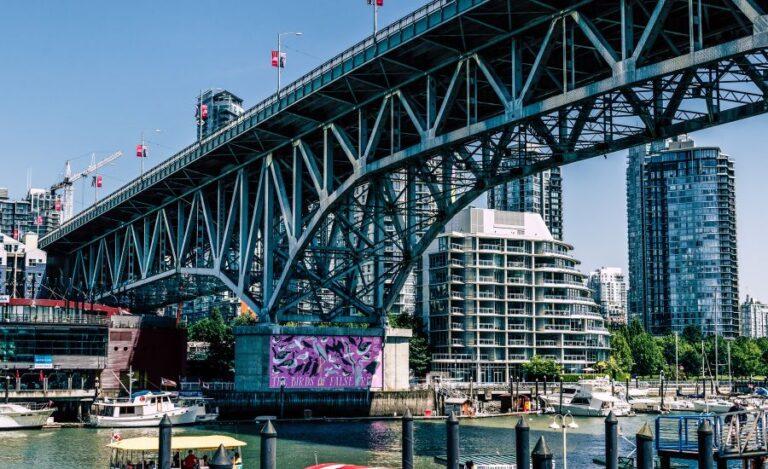Is Moving From Edmonton To Montreal Worth It?
Relocating from one city to another is a major decision that can have a significant impact on your life. When considering a move, it’s essential to weigh the pros and cons carefully.
One popular relocation route in Canada is from Edmonton, the capital city of Alberta, to Montreal, the vibrant metropolis in Quebec.
Both cities offer distinct lifestyles, opportunities, and experiences. In this article, we will delve into the various factors that can help you determine whether moving from Edmonton to Montreal is worth it.
Tips Before Moving To Montreal
- Take the time to learn about Montreal’s neighbourhoods, transportation options, cost of living, local culture, and lifestyle.
- Montreal is a bilingual city where both English and French are commonly spoken. If you’re not already bilingual, consider brushing up on your French skills to help you navigate daily interactions and make connections.
- Ensure you have access to healthcare services in Montreal. Depending on your situation, you may need to switch health insurance plans or find a new doctor in your new city.
- Montreal experiences all four seasons distinctly. Prepare for cold winters by investing in warm clothing and appropriate winter gear.
- Join local clubs, meetups, and social groups related to your interests.
- If you have children, research schools in Montreal to find the best options for their education. Be sure to consider the proximity of schools to your new home.
- Familiarize yourself with Montreal’s public transportation system, including buses and the metro. Consider getting an Opus card, which offers convenient access to public transit.
If you want to have a comprehensive guide on moving, you can read this article on things you know before and after moving to a different city in Canada.
1. Cost of Living
The cost of living is often a crucial factor in relocation decisions. Both Edmonton and Montreal have their own financial considerations. Edmonton generally offers a lower cost of living compared to many other Canadian cities, including Montreal. Housing costs in Edmonton are often more affordable, and everyday expenses such as groceries and transportation might also be lower.
Montreal, on the other hand, is known for its higher cost of living, particularly in terms of housing. The city’s historic charm, diverse culture, and thriving arts scene contribute to its popularity and demand for real estate, which in turn can result in higher housing prices.
2. Job Opportunities
The availability of job opportunities is another significant consideration. Edmonton is a major economic hub, with a strong presence in industries like energy, technology, and healthcare. The city’s proximity to the oil sands has led to significant employment in the energy sector. However, the energy industry’s volatility can affect job stability in the long term.
Montreal, as the largest city in Quebec, offers a diverse job market. It’s a major center for aerospace, technology, finance, and creative industries. The city’s bilingual nature can be an advantage, as proficiency in both English and French can open doors to a wider range of opportunities.
3. Cultural and Social Scene
The cultural and social scene is often a key factor for those seeking a vibrant lifestyle. Montreal is renowned for its rich history, arts, and diverse cultural events. The city’s festivals, such as the Montreal Jazz Festival and Just for Laughs, attract visitors from around the world. Its distinct neighborhoods offer unique experiences, and the bilingual atmosphere provides a multicultural environment.
Edmonton, while smaller, has a growing cultural scene. The city hosts events like the Edmonton International Fringe Theatre Festival and boasts a vibrant music and theatre scene. Its proximity to the Canadian Rockies also offers outdoor enthusiasts ample opportunities for recreation.
4. Language Considerations
One of the most distinctive aspects of Montreal is its bilingual nature, with English and French being the two official languages. This linguistic duality plays a significant role in the city’s culture, daily life, and interactions. When moving to Montreal, it’s important to understand the language dynamics and cultural considerations to help you navigate the city more effectively.
Here Are Some Language Usage Examples:
- Greetings: It’s common to greet someone with “Bonjour” (hello) or “Hi” interchangeably. For example, you might hear someone say, “Bonjour, how can I help you today?”
- Restaurants: Many restaurants have bilingual menus. You might be presented with a menu that includes descriptions of dishes in both English and French.
- Public Transportation: In the Montreal Metro (subway), announcements are made in both languages. Stations have signs in both languages as well.
- Business Settings: In professional settings, it’s polite to inquire about someone’s language preference when conducting business conversations. Meetings and emails might switch between English and French based on participants’ preferences.
Language Learning and Integration:
While English is widely spoken, making an effort to learn and use French can enhance your experience in Montreal. Learning common phrases and practicing both languages will not only help you communicate effectively but also demonstrate your willingness to embrace the local culture.
5. Cultural Considerations
Montreal’s culture is deeply influenced by its French heritage, which adds a European touch to the North American city. When moving to Montreal, it’s beneficial to be aware of some cultural nuances:
- Food and Dining: Montreal is known for its diverse culinary scene, including its famous bagels, poutine, and internationally inspired cuisine. Embrace the local food culture and try traditional Quebecois dishes.
- Festivals: Montreal hosts numerous festivals throughout the year, celebrating music, art, food, and more. Events like the Montreal International Jazz Festival and Just for Laughs are major highlights.
- Art and Creativity: The city boasts a thriving arts and music scene. You’ll find numerous galleries, theaters, and live music venues to explore.
- Outdoor Culture: Despite its cold winters, Montreal residents are avid outdoor enthusiasts. Activities like skiing, ice skating, and biking are popular in different seasons.
- Neighborhoods: Each neighborhood in Montreal has its own unique character and cultural vibe. From the historic streets of Old Montreal to the trendy Plateau-Mont-Royal area, each neighborhood offers a distinct experience.
Cultural Sensitivity
When engaging with Montreal’s diverse community, it’s important to approach cultural differences with sensitivity and respect. Be open to learning about different traditions and practices, and strive to build connections with people from various backgrounds.
In conclusion, moving to Montreal offers a chance to immerse yourself in a bilingual and culturally diverse environment. By understanding the language dynamics, embracing the local culture, and showing respect for the city’s unique identity, you can make a smoother transition and build meaningful connections in your new home.
6. Quality of Life
Both Edmonton and Montreal offer a high quality of life, but the factors contributing to that quality may differ. Edmonton’s lower population density and access to outdoor activities can appeal to those who prefer a more relaxed pace of life. Montreal’s bustling urban environment and European charm may be attractive to those seeking a cosmopolitan experience.
Also Read: 6 Best Family-Friendly Beaches In Montreal
Final Words
The decision to move from Edmonton to Montreal is a complex one that depends on your individual priorities and circumstances. Consider factors such as cost of living, job opportunities, cultural preferences, and lifestyle when making your decision.
Both cities have unique offerings that can enhance your quality of life, but it’s essential to thoroughly research and assess which environment aligns best with your goals and aspirations. Ultimately, whether the move is worth it depends on what you value most in your day-to-day life and long-term plans.







